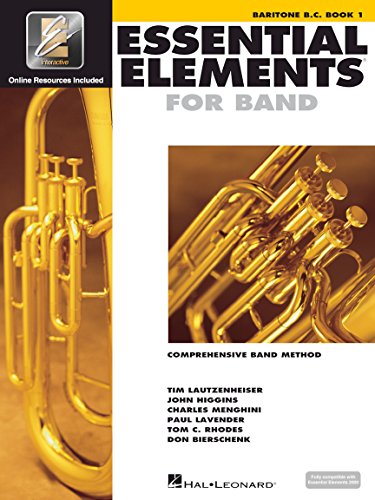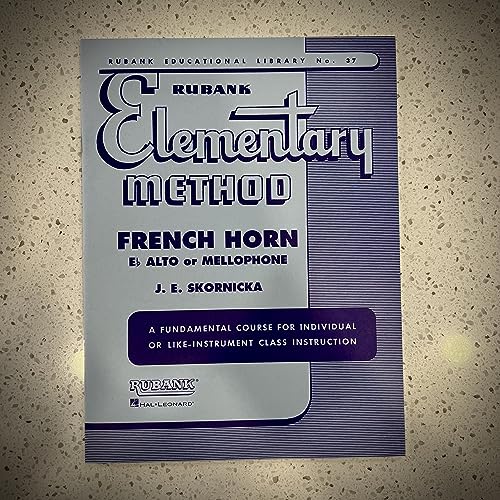In this article, you are going to learn the differences and similarities between the mellophone and baritone, and which one is easier to learn and play.
Although the mellophone and baritone look quite similar, they have lots of differences. The mellophone is a brass instrument with three-valves, pitched in the F or Eb key. Commonly played in the drum corps and marching bands, it has a tighter embouchure that is similar to a flute.
For most beginning brass players, it is a relatively easier instrument to play.
Meanwhile, the baritone is a low-pitched (Bb), piston-valve brass instrument in the saxhorn family. The instrument has a piston-valve and a deep, cup-shaped mouthpieces, with conical bores. Its sound has a characteristically mellow tone quality that blends perfectly with other brass instruments.
Table of Contents
- Differences Between The Mellophone and Baritone
- Which Is Better: The Mellophone or Baritone?
- Is a Mellophone or Baritone Easier To Play?
- FAQs
Differences Between The Mellophone and Baritone
Mellophones are lighter, smaller, and easier to handle on the field compared to baritones. In the typical DCI arrangement style, mellophone parts tend to have more intricate countermelodies and runs compared to baritone parts, as any experienced baritone player can attest.
In addition, it’s not easy to get an excellent tone on mellophones, compared to baritones. There is also generally very high competition for mellophone spots compared to baritone spots.
Properly holding and marching with a baritone involves more physical work, which takes time and thorough practice. Those not willing to put in the work to hold up a baritone and look confident and strong might be best suited to go for a mellophone. Mellophones can sometimes be easier to improve on.
The embouchure for playing a baritone and mellophone are similar. Both require a strong, well-formed embouchure to produce a clear and in-tune sound. Ultimately, the ideal embouchure for each instrument will depend on the individual player and their specific mouth shape and playing style.
As mentioned earlier, a mellophone is lighter than a baritone. However, a baritone is much easier to pick up if you’re coming from the woodwind family of instruments. That’s because it has a larger mouthpiece.
Mellophones are the most pitchy brass instrument. The primary challenges with learning this instrument will be intonation and tone. Its partials are comparable to those of a trumpet.
Depending on your horn, you might come across different problems with the notes. For instance, if you use a Jupiter Quantum mellophone, you will find it extremely difficult to keep the Concert Bb or the High F in tune.
When Concert G or a D is not on a Dynasty mellophone, the High F’s are in tune, but the D’s are not.
You may want to sound similar to a French horn in tone, depending on your director’s mouthpiece choice. It is easier to get that dark sound switching from a baritone to a mellophone. It is also easier to get a dark sound on a mellophone mouthpiece than a trumpet mouthpiece, which a good number of mellophone players use.
Which Is Better: The Mellophone or Baritone?
Baritones can be heavy and difficult to manipulate. On the other hand, a mellophone can be easier to play for beginning brass players. Most players report that they find the mellophone easier to play in registers.
PMV Top Pick – Get the perfect introduction to the baritone with this beginner-approved instrument.
- Lacquered Yellow brass body and bell Bb euphonium with rose-brass lead pipe
- Lightweight, .566″ bore, 12″ upright bell, 4 stainless steel smooth top action pistons
- Includes: silver plated mouthpiece, pro-deluxe hard case, polishing cloth and a pair of gloves
- Bonus: Cecilio 92-D chromatic/string tuner with metronome
Some players also claim that they find the feel and sound of a mellophone to be highly dependent on the mouthpiece used. A small, trumpet-sized mouthpiece on a mellophone can provide an incredible range and flexibility. However, pitches might not center well, and can have a thin tone. Other players have reported that when they use an alto horn mouthpiece, the instrument character changes completely. They get a thick, rich sound.
PMV Top Pick – Start your musical journey on the right foot with this mellophone, designed with beginners in mind.
- Flawless Nickel Plated Finish
- Key of F
- Smooth & Durable Monel Pistons
- Bore Size : .469 inch, Bell : 10.591 inch
- Mouthpiece: included, Case: included
Is a Mellophone or Baritone Easier To Play?
That depends on an individual’s perspective and skill set. Brass instruments require the most blown air, which can be difficult for lots of people to handle when they’re first starting out. Of course, other players might find it easy.
Generally speaking though, it is easier to march mellophone and easier to play baritone.
It’s probably best to try out both instruments by playing a simple tune after doing some quick studying up on how to play the instrument at a “101” level.
Regardless of which one you choose, it’s important to pick out a good book to start learning. Here are a couple of bestsellers we’d recommend starting with.
Baritone
- Title: Essential Elements For Band Book 1 with EEi – Baritone B.C.
Mellophone
- cf-type-band-instrument-method-book, cf-vendor-rubank, reverbsync-shipping-profile:Standard Ground Less than 39.99, Tag_French Horn
- English (Publication Language)
- 48 Pages – 03/01/1989 (Publication Date) – Rubank Publications (Publisher)
Lastly, don’t pick an instrument simply because you’ve heard it’s easy to play. Its sound may not be what you are looking for. When it comes to deciding between a difficult brass instrument that you like, or an easy instrument that you dislike, it might be well worth it to pick the difficult instrument that you like.
You could end up playing that instrument for a good portion of your life, and it will only take you a brief period, relatively speaking, to nail down your skills! Go for what you’re most interested in, since you’ll probably be spending some long hours of “1 on 1 time” with the instrument as you get the basics down.
Pick a brass instrument that you enjoy, and your learning period will be easier. Like we’ve mentioned, try out both if you can, and pick the one you like the best!
FAQs
What is a Mellophone?
A Mellophone is a brass instrument similar to a French horn, but with a flatter and wider bell. It is commonly used in marching bands and orchestral ensembles.
What is a Baritone?
A Baritone is a brass instrument that is larger than a trumpet and smaller than a trombone. It is typically used in brass bands and concert bands.
What is the difference between a Mellophone and a Baritone?
The main difference between a Mellophone and a Baritone is their size and the shape of their bell. The Mellophone has a flatter and wider bell, while the Baritone has a more conical bell. Additionally, the Mellophone is pitched in the key of F or E-flat, while the Baritone is pitched in B-flat.
What is the typical range of a Mellophone?
The typical range of a Mellophone is from the F below middle C to the F above high C.
What is the typical range of a Baritone?
The typical range of a Baritone is from the B-flat below middle C to the B-flat above high C.
What type of music is the Mellophone used for?
The Mellophone is commonly used in marching bands and orchestral ensembles for brass band music, classical music, and other genres.
What type of music is the Baritone used for?
The Baritone is commonly used in brass bands and concert bands for brass band music, classical music, and other genres.
Can a Mellophone or Baritone be played in a marching band?
Yes, the Mellophone is commonly used in marching bands, while the Baritone is sometimes used in marching band arrangements.
Also Read:






